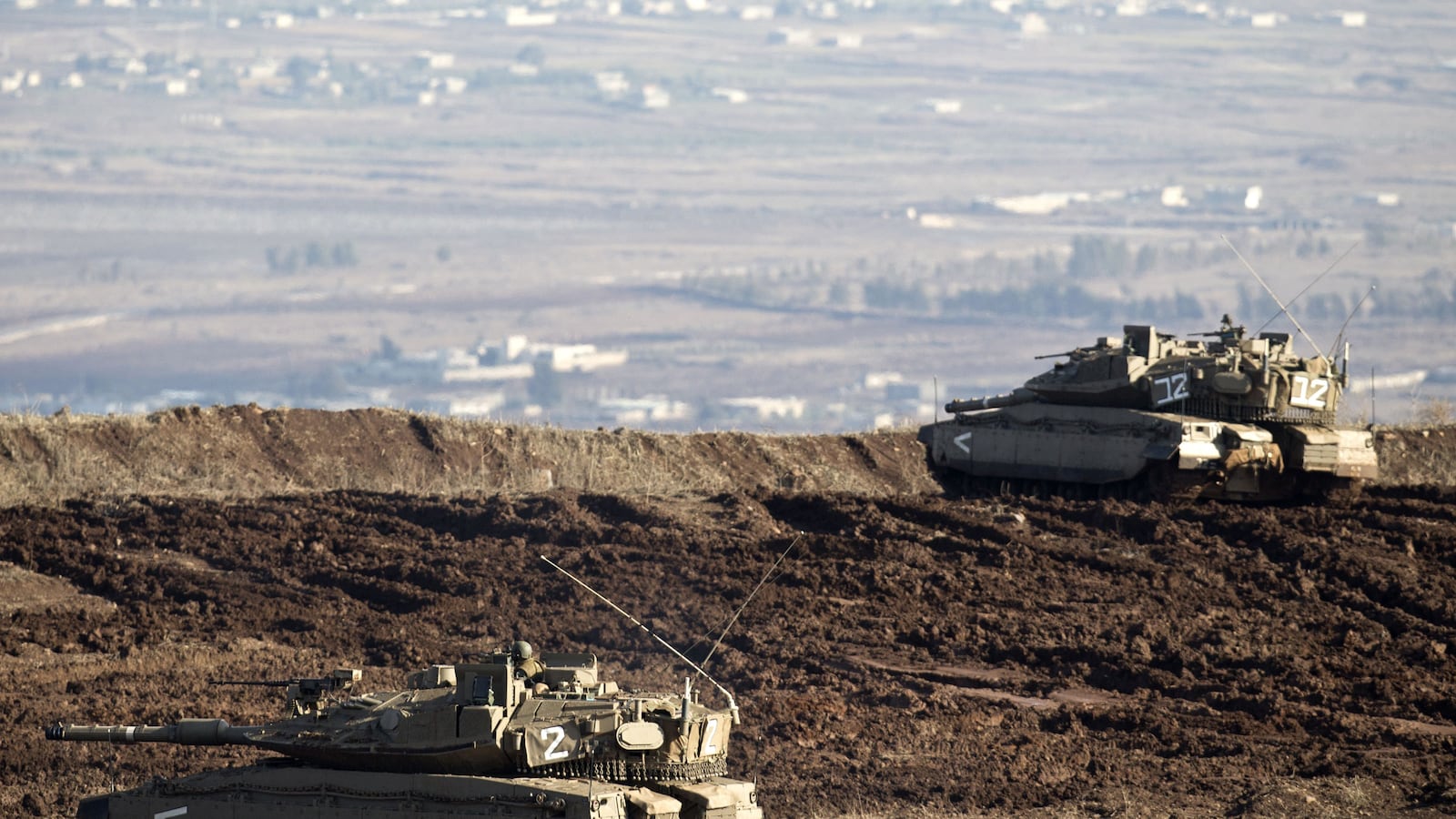There are, in reality, three questions.

Whether the time has come to intervene. The answer is “yes.” With righteous anger, yes. With the bitterness of some 40,000 dead, who—in this case—will have been massacred for nothing, it’s yes. How can we not see that, if we respond “no”—if we persist in doing nothing, if NATO’s airplanes remain grounded and if the French and American troops stationed in Jordan continue to hold out for the hypothetical crossing of that famous red line of chemical warfare—that 40,000 dead will become 50,000…60,000…perhaps more? Who can say where the bloodbath, the spiraling destruction, the grim tornado that strews cadavers in its wake could end?
And how can we not understand, furthermore, that the real question hasn’t been—for a long time now—whether one ought to help Bashar al-Assad stay in power or to topple him (since, in any case, his end is now a foregone conclusion; the only issue that remains is whether he’ll be ousted with our help or without it, with our approval or against our wishes), but whether or not the rebels’ inevitable victory will also be our own, in some small way? The first scenario is the Libyan one, and the only one that gives us a chance—however small—to weigh in on the domestic political battle that will follow the dictator’s fall. The second scenario would be worse, as it would see extremists facing off against democrats, religious zealots facing off against moderate Muslims. And right now, as one might expect given the realities on the ground, everything favors the former group. We can’t say we haven’t been warned.
What can possibly be done? I’ve said this, now, over and over again—and I’ve also said it in private to French and American leaders who have wanted to listen. The main problem is that of airplanes. Naturally, it’s not just about airplanes. In Damascus, for example, there are tanks that are bombarding the orchards of Daraya and firing on the houses in Mouadamiya al-Cham. And that’s not even mentioning the stockpiles of WMDs that the West, rightly or wrongly, suspects the regime of wanting to use—the very thought of which is obviously terrifying. But let’s start with the airplanes. Let’s start by making sure that aircraft can no longer fly over Aleppo, Homs, Maaret al-Numan, or along the border at Ras al-Ain.
There are two ways to go about this. By a no-fly zone enforced, from Turkish airbases, by NATO airplanes—which would be much easier to do than it was in Libya, where even before the intervention we were being told about Muammar Gaddafi’s allegedly invincible anti-aircraft missiles. Or by supplying the necessary arms to the rebels so they can take back the skies themselves, just as they did on September 11 at al-Bukamal, in the province of Deir Ezzor, and as they are still trying to do at Menagh, in the north, at the 20 or so airports—both military and civilian—where planes take off to sow death on the countryside. I know the two options are being discussed by the Chiefs of Staff. But they lack a political green light. They just lack, in other words, a pilot to steer the plane of the right grand policy. Will the U.S. take the lead? Will Turkey? France? Who knows?
Last, what to do in light of the Security Council vetoes of China and, particularly, Russia? The answer: By doing what the Americans did with Iraq, which is to say, by ignoring an obstruction that, in time, will become a sick joke (the example isn’t glorious, but at least it’s proof that it’s doable and that the argument about Russia’s veto is, at best, a false excuse). By doing what the Americans did with their allies before that, in Kosovo. (That latter war was just; the former was noble; and so there’s no reason not to set a clear legal precedent.) Or by doing what Nicolas Sarkozy was ready to do in Libya from the moment he recognized the National Transitional Council (NTC) as the only legitimate authority of the new Libya. (“I hope I have the blessing of the United Nations,” he said in front of me in his office, to three astonished representatives of the NTC. “But if I don’t receive it, the humanitarian crisis—as well as, from now on, your own legitimacy—authorizes me to fight ad hoc against the international coalition, and allows me to give priority to the sacred imperative to save a people over the need to respect an international law that has gone mad.”)
We’re at that point in Syria. We’re at that exact point. Now that the French, followed by the British and the Americans—and, most recently, the Arab League—have recognized the unified opposition as the sole representative of a massacred people, nothing else (or almost nothing) can stop us from bypassing the vetoes that history, without a doubt, will judge harshly.
The Russians themselves have allies who, even as I write this, are trying to make them see the absurd character—the diplomatic suicide—of stonewalling, which, if it continues, will eventually isolate them in the region. Vladimir Putin is not going to die for Tartus. And Assad’s not Gaddafi. One can only hope that François Hollande, David Cameron, and Barack Obama decide to understand that, to understand the consequences of it, and—by helping save the surviving Syrians—decide to save their own honor as well.
Translated from French.






